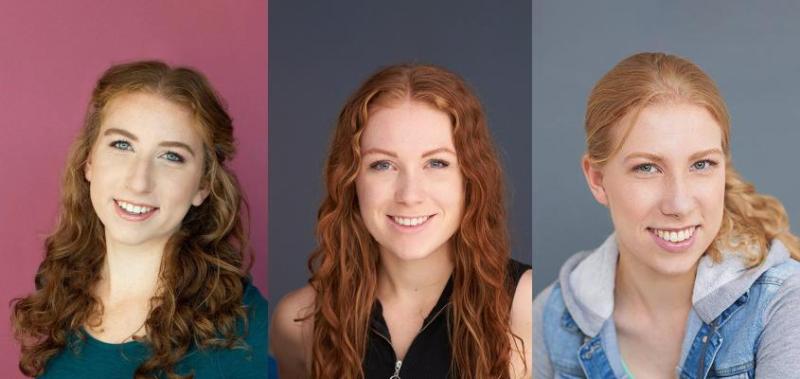March 9, 2022 | Alumni
Alum Edina Bijvoet teams up with her sisters to harness exercise for mental health
By Jelena Damjanovic

The Bijvoet sisters (from left to right: Ronesca, Nicola and Edina) are working together to fight the mental health crisis.
Edina Bijvoet (BKin 2021) was sitting in her third year class at the University of Toronto Faculty of Kinesiology and Physical Education, when she was struck with an idea for a business project. The course, taught by Associate Professor Kelly Arbour-Nicitopoulos, combines theory and practice to introduce students to an integrated bio-psycho-social approach to physical activity participation for persons with varied abilities.
“We were examining some findings which showed that in some cases exercise was just as effective as antidepressants,” says Bijvoet. “I was so impressed with this and, since then, I’ve always wondered why exercise isn’t better utilized to combat mental health problems.”
She convened her sisters, Nicola Bijvoet , a third year student at Rotman Commerce with a minor in computer science, and Ronesca Bijvoet, in her first year of the TrackOne engineering program at U of T, to explore the untapped potential.
In June 2021, they had crystalized the idea for Wellnamic - the Dynamic Approach to Wellness, a gamified digital tool that uses exercise programming to fight the mental health crisis.
Historically, we’ve been conditioned to see exercise as something that can change our bodies, but it can do so much for our minds as well
“Historically, we’ve been conditioned to see exercise as something that can change our bodies, but it can do so much for our minds as well,” says Bijvoet. “Studies have shown that exercise can improve mental health, as well as symptoms of mental illness, and we feel it's important that exercise, a therapy with untapped potential in the mental health space, be utilized to improve the mental health of Canadians.”
Wellnamic combines exercise programming, habit tracking and coping protocols with advanced gamification to make movement enjoyable. Currently in development, Wellnamic is a resident company at the U of T Scarborough entrepreneurship incubator, The Hub, and was one of the winners of The Hub's 2022 pitch competition.
“The Hub has been extremely influential in helping us grow and refine Wellnamic,” says Bijvoet. “We really appreciate their mentorship and support.”
Wellnamic targets youth and young adults, but Bijvoet says the tool could be helpful to other populations, as well.
“My degree in kinesiology has helped me understand how things such as cost, location, gender, race and other equity related concerns can impact exercise and mental health,” says Bijvoet, who graduated with a bachelor of kinesiology in 2021. “As a company that wants to make a social impact, I have drawn on my degree to ensure that we produce equitable programming that includes people from diverse or marginalized backgrounds.”
As a company that wants to make a social impact, we produce equitable programming that includes people from diverse backgrounds
Bijvoet’s social engagement and entrepreneurial spirit were also on display in 2020, when she won the COVID-19 student engagement award given to U of T students with projects that contribute to fostering a global community during the pandemic. With money from the award, she produced a science web series for children, called Coronavirus Uncovered, to teach them about COVID-19 and related health science topics. Across all platforms, the web series was viewed 25, 000 times.
“Producing the show was a great experience that taught me a lot,” she says. “I am very thankful to the University of Toronto for facilitating that opportunity.”
While she continues to build Wellnamic with her sisters, Bijvoet is working as the national chapter coordinator for the Concussion Legacy Foundation Canada, a non-profit organization that supports people with concussions and helps prevent them through education and awareness.
She also writes a bimonthly column called Third-Culture Kid in DUTCH the magazine, drawing on her personal experience of being the child of immigrant parents.
“The column is about my life growing up between two cultures,” says Bijvoet. “I really enjoy writing, so being able to express myself in this way has been a great experience.”
Originally published by Faculty of Kinesiology & Physical Education